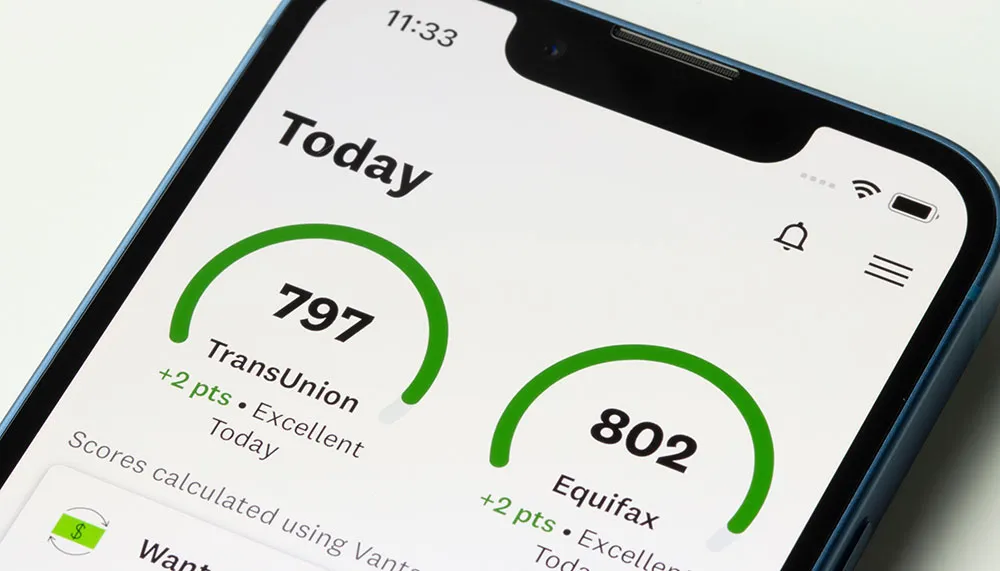Why are Credit Scores Important?
A credit score is a numerical representation of an individual's creditworthiness, which is based on the information in their credit report. It indicates the level of financial risk associated with lending money to an individual and the likelihood of repaying debt on time. Credit scores are important indicators of your financial health. They can impact your ability to get approved for loans, credit cards, utility services, and even rental applications. Learn why credit reports and scores are important and how to build a positive credit reputation for your financial future.
How is a Credit Score Calculated?
Credit scores use a formula that takes into account various factors. The FICO score, the most commonly used credit score, ranges from 300 to 850 and uses five main components, including payment history, amounts owed, length of credit history, recent credit inquiries (new credit), and types of credit used (credit mix).
A higher score can increase the chances of getting approved for a loan or credit card and can usually secure better interest rates. A lower credit score may make it more difficult to get approved for a loan or may be offered higher interest rates, which can make it more difficult to pay off debts.
If you need to speak to somebody, some credit unions offer free credit counseling services to their members.
| FICO Score Calculation | How to Improve |
|---|---|
| Payment History – 35% | Pay your bills on time, even if you only make minimum payments. |
| Amounts Owed – 30% | Keep balances low and available credit high. |
| Length of Credit History – 15% | Maintain a longer credit history on accounts. |
| New Credit – 10% | Limit new credit applications. |
| Credit Mix – 10% | Have different types of credit – auto loans, mortgages, credit cards, etc. – and do not open unneeded credit accounts. |
What is a Good Credit Score?

Credit scores generally range from 300 to 850, with 850 as exceptional. While credit score ranges vary, typically scores are considered as follows:
- Poor credit: Below 580
- Fair credit: 580 to 669
- Good credit: 670 to 739
- Very good credit: 740 to 799
- Excellent credit: 800 and higher
Scores in the good or excellent range usually afford more access to better financial products.
How Do I Check My Credit Score?
The three credit reporting companies provide credit scores for a fee. You can make a request for your credit score online and by phone.
- Equifax: Call 1-800-685-1111 or visit www.equifax.com
- Experian: Call 1-888-397-3742 or visit www.experian.com/credit/credit-score
- TransUnion: Call 1-800-493-2392 or visit www.transunion.com/credit-score
In some instances, your credit union, credit card company, lenders, or non-profit credit or housing counselors may also offer your credit score for free. However, these are not always the same as the ones you would get from credit reporting agencies. These “educational credit scores” are intended to help you keep track of your score.

How to Improve Credit Score
The best way to improve your credit score is to pay your bills on time each month, keep your debt balances low, and to be careful about having too many debts at once. Additionally, check your credit report regularly to ensure there are no errors or instances of fraud that may be impacting your credit score. If there are errors, dispute the credit report via the credit bureau customer service channels.
Why Does My Credit Score Vary?
Each credit bureau ranks your credit history and assigns you a score based on a series of financial behaviors. The methodology is slightly different at each, the higher the number, the better. Most credit scores are created either by FICO or VantageScore. There are many similarities in how these credit scores work, but there are also some differences in how the scores are presented and interpreted by lenders.
Fair Credit Reporting Act
Since 1970, the Fair Credit Reporting Act (FCRA) has been an important federal law that regulates the collection, dissemination, and use of consumer credit information. Learn how the FCRA protects consumers’ rights and what actions you can take to keep your credit in good shape.
Frequently Asked Questions
You can initiate a dispute by searching for the contact details of one of the three major consumer reporting agencies: TransUnion, Equifax, or Experian, or by directly contacting your credit union. To file a direct dispute with your credit union, you need to send a formal notice to the address provided by the credit union on your consumer report, or an address specifically indicated for dispute submissions. If no such address is available, you may send your notice to any business address associated with the credit union. Your dispute notice should include specific information, such as enough details to identify the account or relationship in question, the exact information you are disputing, and your reasons for the dispute. Additionally, consumers must include any supporting documentation or relevant information requested by the furnisher to substantiate their dispute. This may include items like a copy of the relevant section of the consumer report that contains the disputed information, a police report, a fraud or identity theft affidavit, a court order, or account statements.
A consumer report can be requested by a credit union when you seek to obtain a loan, which includes credit for making a purchase. In this scenario, the credit union has a legitimate purpose for seeking the report and does not require specific authorization, regardless of how the credit application is submitted—whether in person, by phone, by mail, or online. Importantly, the fact that credit is ultimately not granted does not make the request for a credit report improper. The credit union does not violate your privacy by obtaining your consumer report when you seek a loan nor are they required to obtain your permission when they report information about your payment performance to a consumer reporting agency.
The credit union can report your personal information to the consumer reporting agencies in accordance with Regulation P, which allows the credit union to report information about you to a consumer reporting agency. Also, under Regulation P, you have no right to opt out of having the credit union report your personal information to the credit reporting agencies. Regulation P does not apply when a credit union discloses nonpublic personal information to a consumer reporting agency in accordance with the Fair Credit Reporting Act.
It is important to note that the credit union does not calculate your credit score, but the national consumer reporting agencies use proprietary software to determine how the score is calculated using a scoring model. FICO is just one of many scoring models. FICO has identified the following categories and weights of each factors used to generate FICO scores:
- Payment History (35%);
- Amounts Owed (30%);
- Length of Credit History (15%);
- New Credit (10%); and
- Types of Credit in Use (10%).
When a lender tells you that your credit utilization is high, that means you are using a large percentage of your available credit. This can have a significant negative impact on your credit score. Being aware of this can help you make more cautious financial decisions. Credit utilization is a critical factor in determining your credit score. Lenders might be less willing to extend new credit to you, or they may offer less favorable terms, such as higher interest rates.
Installment loans (mortgages, auto loans, student loans and personal loans) are not included in the credit utilization ratio. These loans are repaid over a fixed period with set monthly payments. They affect your credit score through your payment history and the overall amount of debt you carry, but they are not part of the utilization calculation.
Your credit utilization ratio includes only revolving credit accounts. Examples of these accounts are credit cards, personal lines of credit, and home equity lines of credits (HELOCs).
Your credit utilization is calculated by comparing the amount of credit you’re using to your available credit. Here’s how you can calculate it.
- Add Up Your Balances – Sum the balances on all your credit cards.
- Add Up Your Credit Limits – Sum the credit limits on all your credit cards.
- Divide and Multiply – Divide the total balance by the total credit limit, then multiply by 100 to get a percentage.
For Example: If you have a total balance of $2,000 and a total credit limit of $10,000, your credit utilization ratio would be 20%. If you have a total balance of $3,500 and a total credit limit of $10,000, your credit utilization ratio would be 35%. Using below 30% of your available credit or your credit limits is suggested because using less is better for your score.
A FICO score is a type of credit score created by a specific algorithm used by the Fair Isaac Corporation (FICO). It’s one of the most widely used credit scoring models by lenders to assess risk. A credit score is a numerical representation of your creditworthiness, which is a measure of how likely you are to repay a loan. It’s based on your credit history and helps lenders assess the risk of lending you money. Lenders may use different types of credit scores depending on their preferences, the industry, and the specific type of credit or loan you are applying for.
A hard inquiry means that someone has requested to look at your credit report to determine your creditworthiness. Hard inquiries typically occur when you apply, for instance, for a new credit card, car loan or mortgage. Hard inquires will show up on your credit report and may stay there for two years. Additionally, hard inquiries may lower your credit score.